March/April Update
30.04.2021
Welcome to the latest reflection on the past two months at Crisis Skylight Birmingham.
We are so pleased that the evenings are getting lighter and the days are getting warmer.
Signs of spring can be seen everywhere.
POWER UP
International Women's Day was 8 March 2021 and to mark the occasion, we held an event for members, volunteers, and staff over zoom.
During the session we decorated bunting which showed things that we were proud of.
Below are the wonderful works of art


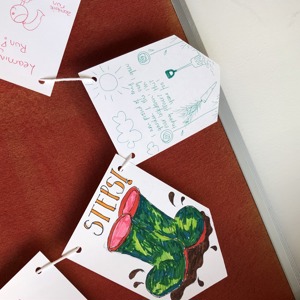
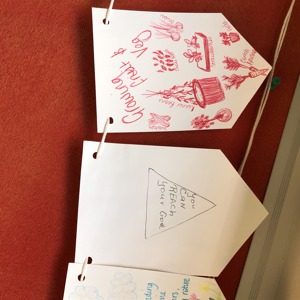
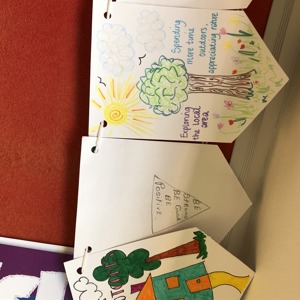
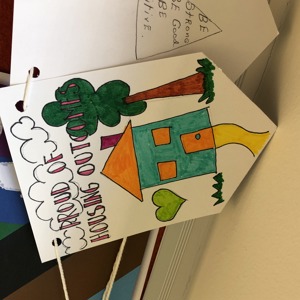
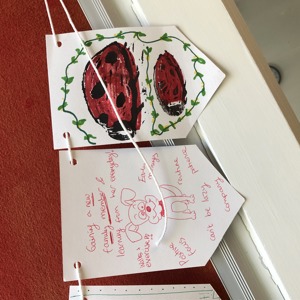

In April, the Power Up group were learning how to do some spring themed Origami and our members made some tulips from paper

Ramadan 2021
Ramadan, the ninth month of the Islamic calendar started in the middle of April.
During this holy month Muslims across the world observe a periods of fasting from sunrise to sunset.
We are joining in celebrating this time with our members, ahead of the joyful festival of Eid, and sent out well-being packs to our members who are marking Ramadan this year.
In the packs are Dates ( really great to eat during the sundown hours as they are slow energy release ),
A Dua-a-Day calendar for members to write down a prayer each day. T
here are also items in each pack for celebrating Eid when the time comes.
With sweets, chocolate and a create-your-own Eid bunting kit.

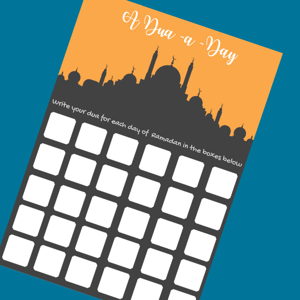

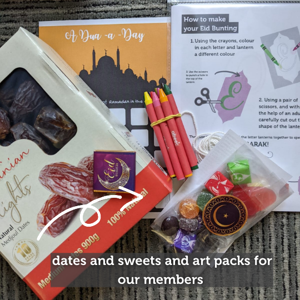
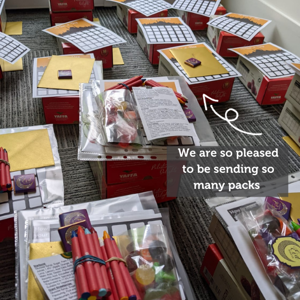
Thank you so much for the beautiful Ramadan gifts.
Thank you for the heartfelt compassion
- Crisis Member JM
Health Now
Now we have highlighted people’s experiences it is more important that we act to create change.”
- Frances Schofield, #HealthNow Coordinator, Crisis Skylight Birmingham.
On 19 March 2021, Crisis Skylight Birmingham and Groundswell are launched our peer research report ‘Understanding homeless health inequality in Birmingham’.
This research is part of the #HealthNow campaign led by Groundswell, delivered in partnership with Crisis in Birmingham on a local level.
Between September and November 2020, six peer researchers carried out 64 semi-structured interviews with people experiencing homelessness in Birmingham. They aimed to:
“Identify barriers to people experiencing homelessness, accessing care and treatment at a local level, in three key partner cities and develop action plans to eradicate those barriers”.
This peer-led research provides empirical evidence illustrating the issues people experiencing homelessness face when accessing healthcare services and maintaining
their own health and wellbeing. The key themes identified were:
• Challenges when accessing various primary care and secondary care services: People described significant barriers to accessing healthcare services. This was often due to challenges with registration (especially with GPs and dentists), inflexible appointment booking systems and long waiting periods to get the support that they needed.
• Positive experiences of using pharmacies: People praised their experiences of using pharmacies which were largely described as flexible, friendly and informative.
• Long waiting times for mental health support and limited follow up support: People often felt that the mental health support they received was not timely enough, too limited and lacked follow-up support.
• Difficulties with clear and consistent communication: People told us about poor and inconsistent communication between health services and patients which often led to a lack of clarity about appointments and treatment. This was especially an issue for people whose care had changed due to the pandemic or were digitally excluded.
• Financial barriers to healthcare and preventative measures: People outlined several barriers to accessing healthcare that were due to a lack of money including for travel costs and phone credit. Financial barriers also impacted people’s ability to maintain their own health and wellbeing such as struggling to afford sufficient and nutritious food.
• Experiences of stigma and lack of awareness from healthcare staff: Despite some positive experiences of engaging with healthcare staff from a range of services, p people also referenced the impact of the stigma faced when engaging with staff.
• Lack of interpreting services: Several people described challenges when accessing interpreting services. The limited availability of these services had a significant impact on patients who faced increased waiting times and difficulties understanding their care and treatment.
• Patient feedback: The majority of people we heard from had not been asked for feedback or made a complaint about the healthcare services they had used, despite feeling that their experience was poor. This highlights the need for services to ensure patients have accessible ways to feedback and clear information outlining complaints and feedback processes.
These findings will be used to inform a local homeless health action plan which will be devised by Birmingham’s #HealthNow alliance. They will also influence Groundswell's national #HealthNow campaign to inform national decision making processes.
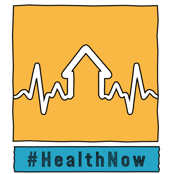 To read the full report - please visit https://groundswell.org.uk/wp-content/uploads/2021/03/Crisis-and-Groundswell-HealthNow-Birmingham-research-March-2021.pdf
To read the full report - please visit https://groundswell.org.uk/wp-content/uploads/2021/03/Crisis-and-Groundswell-HealthNow-Birmingham-research-March-2021.pdf
